Quantum Information
On 19-20 February 2025, the Royal Society will hold a conference on the future of quantum-based computing, networks and sensing systems.
The United Nations has proclaimed 2025 as the International Year of Quantum Science and Technology. This conference aims to contribute to the year-long celebrations of quantum science and its applications.
Over two days, industry leaders, top scientists and key public sector stakeholders will convene to highlight advances and prospects in quantum innovation and consider the scientific and technical challenges facing the field. Discussions will focus on the future of quantum information processing and related technologies, examining what support is needed to scale existing technologies and which predictions for the future are both ambitious and realistic.
Transforming our future conferences
This conference forms part of the Royal Society's industry-focused Transforming our future series. These unique meetings feature cutting-edge science and bring together experts from industry, academia and government to explore and address key scientific and technical challenges of the coming decade.
Organisers
Schedule
| 09:30-09:35 |
Welcome & opening remarks
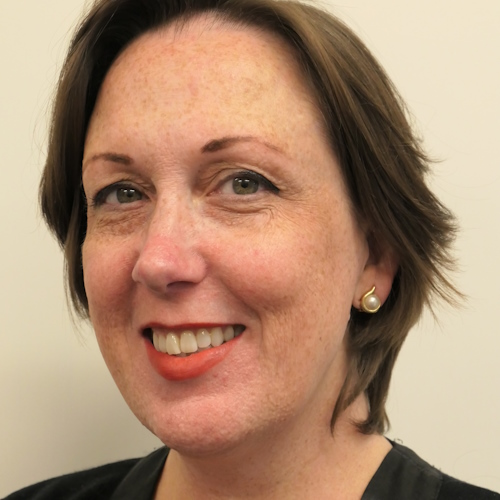
Professor Sheila Rowan CBE FRSUniversity of Glasgow 
Professor Sheila Rowan CBE FRSUniversity of Glasgow Professor Sheila Rowan FRS is the Chair of Natural Philosophy at the University of Glasgow and Physical Secretary and Vice-President of the Royal Society. Since 2009, Professor Rowan has been Director of the Institute for Gravitational Research at the University of Glasgow’s School of Physics and Astronomy. Her research contributed to one of the most significant scientific breakthroughs of this century: the first detection of gravitational waves announced in February 2016. This resulted in a share of the 2016 Special Breakthrough Prize in Fundamental Physics for her and the members of her team in Glasgow. She received the Hoyle Medal and Prize of the IOP in 2016, the Harold Hartley Medal of the Institute of Measurement and Control in 2020 and was made a CBE in 2021. She received the (inaugural) Philip Leverhulme Lifetime Achievement Award in 2023. Sheila served from 2018 - 24 on the Council of the Science and Technology Facilities Council, latterly as its Senior Independent Member and Co-Chair. From 2016 - 21 she was the Chief Scientific Advisor to the Scottish Government, and from 2021 - 23 served as President of the Institute of Physics (IoP). She is currently the Deputy Chair of the Strategic Advisory Board for the UK National Quantum Technology Program. |
|---|---|
| 09:35-09:40 |
Introduction to keynote
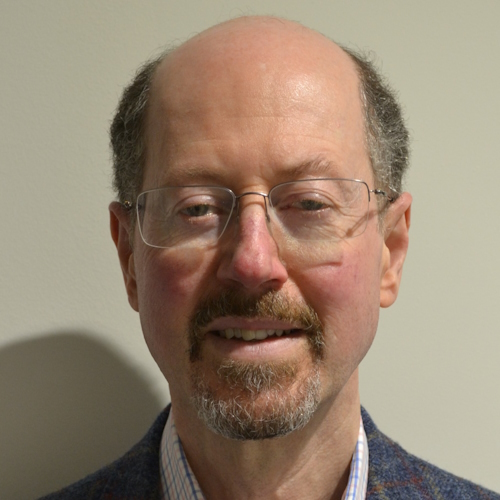
Professor Martin Dawson FRSUniversity of Strathclyde 
Professor Martin Dawson FRSUniversity of Strathclyde Martin Dawson is professor and director of research at the University of Strathclyde’s Institute of Photonics, which he helped establish almost 25 years ago. Since 2012 he has also been the inaugural Head of the Fraunhofer Centre for Applied Photonics (Fraunhofer CAP) in Glasgow. Martin has contributed broadly to laser and semiconductor research including ultrafast lasers, optically-pumped semiconductor lasers, diamond photonics and micro-LEDs, the latter of which is now emerging globally as a new form of commercial display technology. He holds fellowships of the IEEE, OSA, Institute of Physics and Royal Society of Edinburgh, and he has been awarded the Dennis Gabor Medal and Prize of the IOP and the Aron Kressel Award of the IEEE. |
| 09:40-10:20 |
The First 100 Years of Quantum Science : From Inspiration to Economic and Societal Value
This year we celebrate the UNESCO International Year of Quantum, marking the 100th anniversary of the discovery of quantum mechanics by Heisenberg, Born, Schrödinger, Dirac and colleagues. We now live in a quantum enabled world, with devices powered by quantum mechanics affecting our everyday world (lasers, telecoms, semiconductor chips and much more). But we are now exploiting new technology capabilities enabled by some of the stranger aspects of quantum physics: quantum coherence and entanglement. These new capabilities include novel sensing, timing, imaging and computing, enabling societal benefit from this transformational technology. I will describe the journey from fundamental science to practical realisation. This new era of quantum technologies will transform economies in our digital age and help to address society’s challenges: advancing health care and environmental protection, achieving better land use, supporting financial services and communications and providing extraordinary computing power. 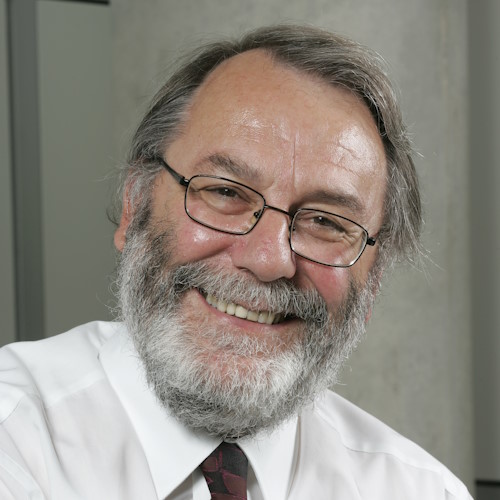
Sir Peter Knight FRSImperial College London & National Physical Laboratory, UK 
Sir Peter Knight FRSImperial College London & National Physical Laboratory, UK Knight is Chair of the UK National Quantum Technology Programme Strategy Advisory Board and has been involved in the creation of the UK Quantum programme since its inception, including the creation of the UK Quantum Strategy and the commitment of £2.5bn over the next decade to the field. He chairs the Quantum Metrology Institute at the National Physical Laboratory and in Senior Research Investigator at Imperial College where until 2010ne was Deputy Rector (Research). He was knighted in 2005 for his work in optical physics. Knight was the 2004 President of the Optical Society of America and 2011-2013 President of the Institute of Physics. He was until 2010 chair of the UK Defence Scientific Advisory Council and remains a UK Government science advisor. His research centres on quantum optics, nonclassical light and quantum technology. He has won the Thomas Young Medal and the Glazebrook Medal of the Institute of Physics, the Ives Medal and the Walther Medal and Prize of the OSA, the Royal Medal of the Royal Society and the Faraday Prize of the IET. He chairs the Steering Group for UNESCO's International Year of Quantum. |
| 10:20-10:30 |
Q&A
|
Chair
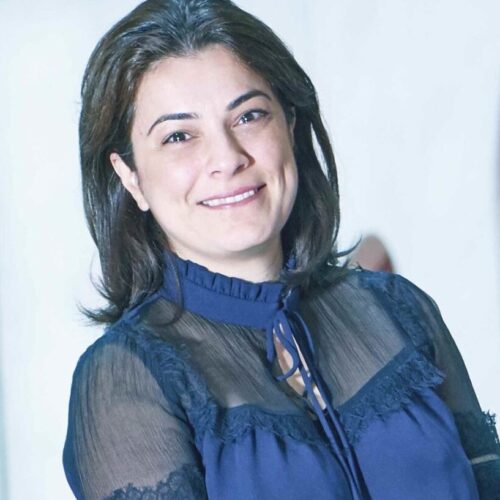
Professor Elham Kashefi
University of Edinburgh / Sorbonne University / National Quantum Computing Centre

Professor Elham Kashefi
University of Edinburgh / Sorbonne University / National Quantum Computing Centre
Elham Kashefi (FRSE) is a Professor of Quantum Computing at the University of Edinburgh and CNRS Director of Research at Sorbonne Universite and NQCC Chief scientist. She has pioneered transdisciplinary research on the structure, behaviour, and interactions of quantum technology, from formal and foundational aspects all the way to actual industrial use-case delivery (co-founder of VeriQloud). Kashefi's research team innovates across a broad range of platforms (photonic, superconducting, ion trap) with an integrated software research programme (simulation, modelling and benchmarking) delivering impact in quantum computing (machine learning, cryptanalysis) and quantum networks (quantum cryptography, quantum cloud computing) in a certifiable way (provable security and verification of computation).
| 10:30-10:35 |
Introduction to Session 1

Professor Elham KashefiUniversity of Edinburgh / Sorbonne University / National Quantum Computing Centre 
Professor Elham KashefiUniversity of Edinburgh / Sorbonne University / National Quantum Computing Centre Elham Kashefi (FRSE) is a Professor of Quantum Computing at the University of Edinburgh and CNRS Director of Research at Sorbonne Universite and NQCC Chief scientist. She has pioneered transdisciplinary research on the structure, behaviour, and interactions of quantum technology, from formal and foundational aspects all the way to actual industrial use-case delivery (co-founder of VeriQloud). Kashefi's research team innovates across a broad range of platforms (photonic, superconducting, ion trap) with an integrated software research programme (simulation, modelling and benchmarking) delivering impact in quantum computing (machine learning, cryptanalysis) and quantum networks (quantum cryptography, quantum cloud computing) in a certifiable way (provable security and verification of computation). |
|---|---|
| 10:35-10:50 |
The question of quantum advantage in analogue and digital quantum simulation
In parallel to rapid developments in quantum computing hardware, highly controlled quantum systems are being applied as analogue quantum simulators to study problems of interest in many-body physics. How do these approaches compare? Under which conditions can the answers we get out be qualitatively reliable? And where can they provide answers to questions we cannot address with simulation on classical computers? I will address this comparison, and ask where we might expect to obtain a practical quantum advantage for simulation of quantum systems, together with which approaches we might take towards these problems in the early fault-tolerant era of quantum computing. 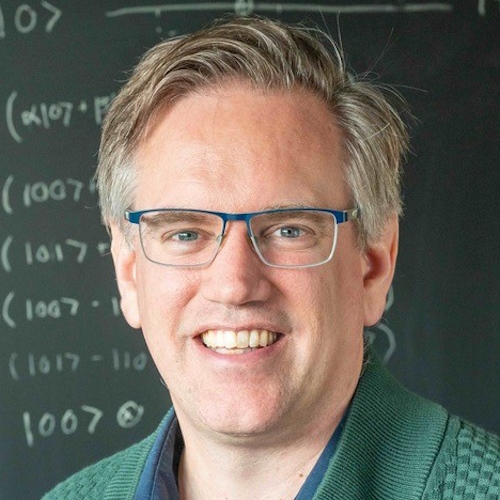
Professor Andrew DaleyUniversity of Oxford 
Professor Andrew DaleyUniversity of Oxford Andrew Daley is a Professor of Quantum Physics at the University of Oxford. Originally from New Zealand, he completed his PhD at the University of Innsbruck in Austria, and was an Assistant Professor at the University of Pittsburgh before taking up a position as Professor of Theoretical Quantum Optics at the University of Strathclyde in 2013. His research bridges fundamental research in quantum optics and many-body physics to the design and applications of quantum technologies. He is PI of the new QCi3 Hub in the UK National Quantum Technologies programme, and PI of the EPSRC Programme Grant in Quantum Advantage in Quantitative Quantum Simulation. An important part of his research team's work focusses on developing new implementations of quantum computing and quantum simulation, and their applications both in fundamental physics (many-body dynamics and open quantum systems), and more widely across science, engineering, and industry. |
| 10:50-11:05 |
Talk 2
Professor Kristel MichielsenForschungszentrum Jülich GmbH Professor Kristel MichielsenForschungszentrum Jülich GmbH |
| 11:05-11:15 |
Q&A
|
Chair
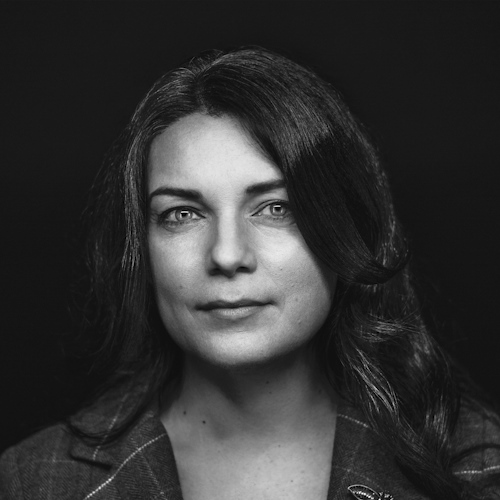
Professor Jennifer E. Hastie
University of Strathclyde

Professor Jennifer E. Hastie
University of Strathclyde
Professor Jennifer Hastie is Director of the Institute of Photonics at the University of Strathclyde, an applied research unit and cost centre within the Department of Physics with more than 70 staff and postgraduate students conducting research in Advanced Lasers, Photonic Integration and Devices, Neurophotonics, and Optical Wireless Communications. She leads the Institute’s research in high brightness lasers with a primary interest in meeting the challenging laser performance requirements for cutting-edge applications in metrology and quantum technology, and from 2014-2024 she was on the Management Board of the National Quantum Technology Hub for Sensing & Timing. She is Deputy Principal Investigator of the EPSRC-funded programmes the Photonics & Quantum Accelerator and the National Hub for Quantum Enabled Position, Navigation, and Timing. In 2023 she was elected a Fellow of Optica for “leadership in the photonics and quantum technology community and pioneering technical contributions in the area of narrow-linewidth lasers.”
| 11:45-11:50 |
Introduction to Session 2

Professor Jennifer E. HastieUniversity of Strathclyde 
Professor Jennifer E. HastieUniversity of Strathclyde Professor Jennifer Hastie is Director of the Institute of Photonics at the University of Strathclyde, an applied research unit and cost centre within the Department of Physics with more than 70 staff and postgraduate students conducting research in Advanced Lasers, Photonic Integration and Devices, Neurophotonics, and Optical Wireless Communications. She leads the Institute’s research in high brightness lasers with a primary interest in meeting the challenging laser performance requirements for cutting-edge applications in metrology and quantum technology, and from 2014-2024 she was on the Management Board of the National Quantum Technology Hub for Sensing & Timing. She is Deputy Principal Investigator of the EPSRC-funded programmes the Photonics & Quantum Accelerator and the National Hub for Quantum Enabled Position, Navigation, and Timing. In 2023 she was elected a Fellow of Optica for “leadership in the photonics and quantum technology community and pioneering technical contributions in the area of narrow-linewidth lasers.” |
|---|---|
| 11:50-12:05 |
Quantum computers need (huge) classical computers
To build useful quantum computers we are going to need a huge amount of classical computing – from microwave signal generation to real-time decoding for quantum error correction. I’ll review why, what the classical compute is doing and the implications for achieving useful quantum computing at a price point that makes sense. 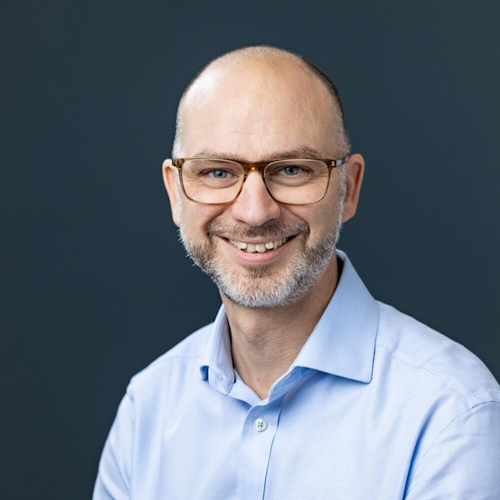
Steve BrierleyRiverlane 
Steve BrierleyRiverlane Steve Brierley founded Riverlane in 2016 to build the error correction stack for quantum computers. Driven by his conviction that fault-tolerant quantum computers will accelerate human progress, Riverlane partners with leading quantum hardware companies to make that happen sooner. Steve has worked in quantum for over 20 years and is an expert advisor to the UK government. He holds a PhD in quantum information, spent a decade in the intelligence community and worked as a Senior Research Fellow at the University of Cambridge leading major research projects in quantum computing. In January 2024, Steve was awarded an OBE for his services to quantum computing. |
| 12:05-12:20 |
Qumodes, flying qubits, and MBQC: How photonics is different from other QC modalities and why that’s good.
Photonic quantum information processing sometimes causes head-scratching to the uninitiated. Unlike other quantum particles, photons are always in motion, do not interact directly with each other, and lack a natural 2-level structure. Instead, each photon can be controlled across multiple orthogonal parameters: time, frequency, path, and polarization. Each dimension of control represents a different way in which they can be encoded… perhaps even all at once! In this talk I will embrace the unique nature of photons and explore how leveraging every distinct characteristic can help build efficient systems to address the challenges facing generative AI applications today. 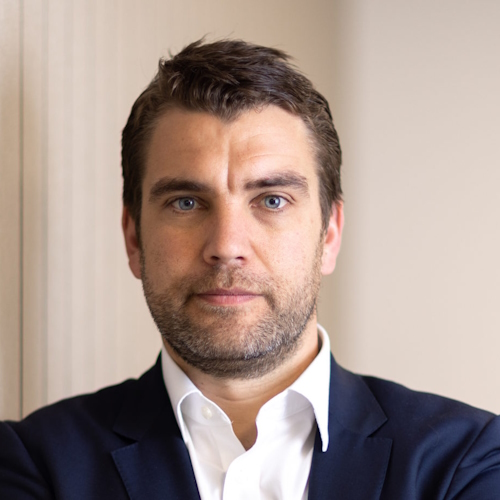
Dr Richard MurrayORCA Computing 
Dr Richard MurrayORCA Computing Richard co-founded ORCA Computing in 2019. He is an accomplished business executive and technologist with a PhD in quantum atom-optics and over 15 years of experience managing scientific teams working on disruptive early-stage technologies such as quantum, AR/VR and other consumer and industrial applications of photonics. Under Richard's leadership, the company has grown to a team of over 65 people and expanded its global presence by establishing U.S. headquarters in Austin, Texas, following a strategic acquisition in 2024. He developed a roadmap focused on building a fault-tolerant universal quantum computer. Previously, Richard worked for the UK government alongside Sir Peter Knight creating the £270m UK quantum technologies program. He was also pivotal in the early stages of the €1 billion EU quantum flagship program. |
| 12:20-12:35 |
Transformative value of Quantum and AI: brining meaningful insights for critical applications today
The ability to solve classically intractable problems defines the transformative value of quantum computing, offering new tools to redefine industries and address complex humanity challenges. Quantinuum’s hardware is leading the way in achieving early fault-tolerance, marking a significant step forward in computational capabilities. By integrating quantum technology with AI and high-performance computing, we are building systems designed to address real-world issues with efficiency, precision and scale. This approach empowers critical applications from hydrogen fuel cells and carbon capture to precision medicine, food security, and cybersecurity, providing meaningful insights at a commercial level today. 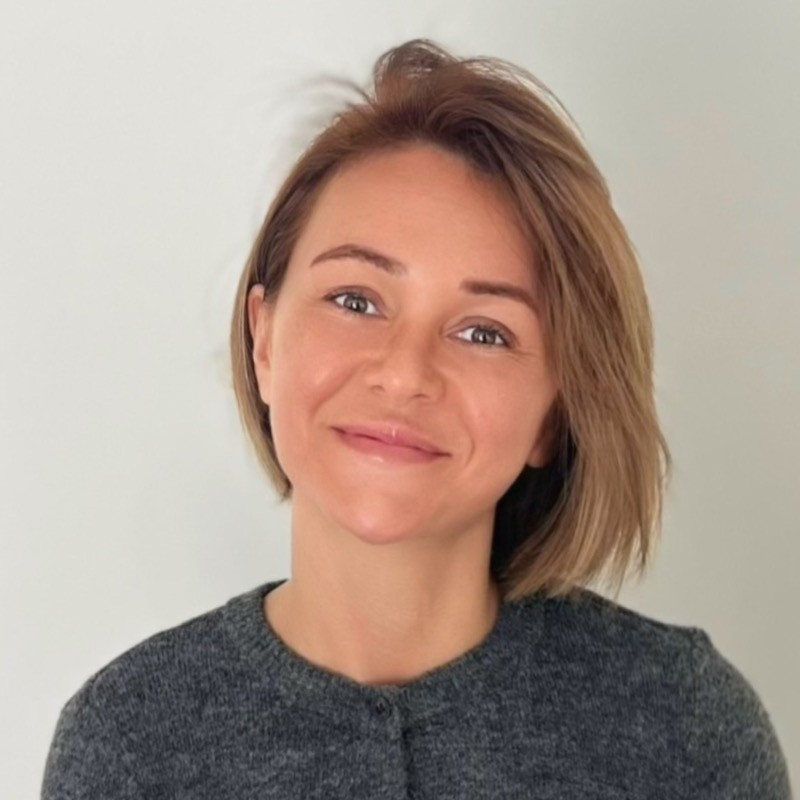
Dr Elvira ShisheninaQuantinuum 
Dr Elvira ShisheninaQuantinuum Elvira Shishenina is the Senior Director of Strategic Initiatives at Quantinuum, where she leads global efforts to explore industrial pathways to quantum advantage. She brings a wealth of experience from her pioneering work at BMW Group, where she spearheaded quantum computing research for material simulation, and at TotalEnergies, where she contributed to innovations for sustainable energy. Elvira holds a PhD in Mathematics from French Inria and is an alumna of the prestigious École Polytechnique in Paris. |
| 12:35-12:45 |
Q&A
|
Chair
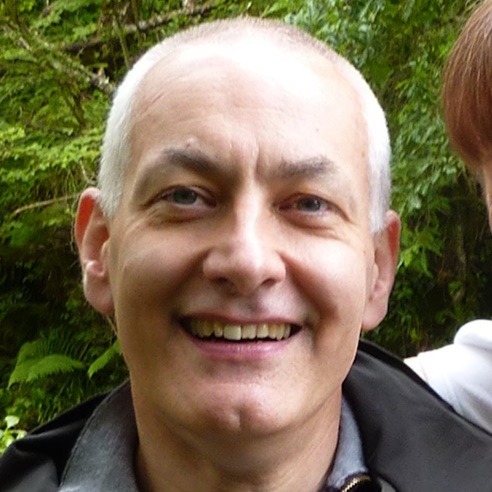
Professor Leigh Lapworth
Rolls-Royce plc

Professor Leigh Lapworth
Rolls-Royce plc
Prof Leigh Lapworth is a Rolls-Royce Engineering Fellow specialising in Computational Science with over 30 years’ experience of developing and applying physics-based simulation using High Performance Supercomputers. He led the development of the Rolls-Royce corporate CFD (Computational Fluid Dynamics). Other previous roles include Chief Design Systems Architect and Head of Computational Science. He has led several successful industrial-academic collaborative research projects. The most recent being a pre-exascale EPSRC Prosperity Partnership. Leigh leads the Rolls-Royce Quantum Computing initiative. To date this includes three Innovate UK co-funded projects and a small portfolio of directly funded projects with national and international partners. These focus on algorithms for error corrected computers and the hybrid classical-quantum interface.
Leigh is a Chartered Mathematician and Fellow of the Institute of Mathematics and its Applications and an Honorary Professorial Fellow in Computer Science at the University of Warwick.
| 13:45-13:50 |
Introduction to Session 3

Professor Leigh LapworthRolls-Royce plc 
Professor Leigh LapworthRolls-Royce plc Prof Leigh Lapworth is a Rolls-Royce Engineering Fellow specialising in Computational Science with over 30 years’ experience of developing and applying physics-based simulation using High Performance Supercomputers. He led the development of the Rolls-Royce corporate CFD (Computational Fluid Dynamics). Other previous roles include Chief Design Systems Architect and Head of Computational Science. He has led several successful industrial-academic collaborative research projects. The most recent being a pre-exascale EPSRC Prosperity Partnership. Leigh leads the Rolls-Royce Quantum Computing initiative. To date this includes three Innovate UK co-funded projects and a small portfolio of directly funded projects with national and international partners. These focus on algorithms for error corrected computers and the hybrid classical-quantum interface. Leigh is a Chartered Mathematician and Fellow of the Institute of Mathematics and its Applications and an Honorary Professorial Fellow in Computer Science at the University of Warwick. |
|---|---|
| 13:50-14:05 |
Distributed Quantum Computation via the Entanglement Fabric
2024 was an important year for the Quantum Computing industry. Two major conditions for quantum computation were demonstrated: the ability to create high-fidelity physical qubits, and the ability to perform quantum error-correction on those qubits to achieve even-higher (useful) fidelities. Now that we have achieved high-quality and stable qubits, the only orders-of-magnitude challenge left is scaling: whereas Quantum Processing Units (QPU) will be able to host 1-10k good physical qubits in a single chip or module, for utility, industry consensus is that circa 100k-1M physical qubits will be required. This talk will describe how networking of small and robust QPUs to create a large coherent computer via an error-correctable Entanglement Fabric has recently been demonstrated by Nu Quantum to be viable, feasible, and efficient path to scale. This approach - usually referred to as ‘Scale-out’ in classical computation - can offer a predictable engineering roadmap to scale for quantum computation, and eventually for sensing and communications. 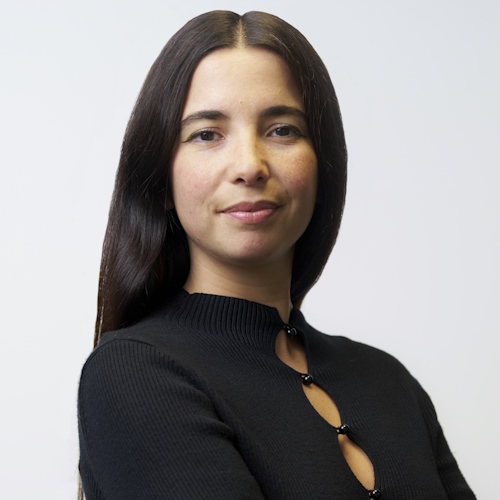
Dr Carmen Palacios-BerraqueroNu Quantum 
Dr Carmen Palacios-BerraqueroNu Quantum Dr. Carmen Palacios-Berraquero is the Founder and Chief Executive of Nu Quantum, the leading quantum entanglement company, based in Cambridge, UK. She is an award-winning quantum physicist and inventor, author of several high-impact research papers and a book based on her doctoral research. Prior to founding Nu Quantum, Carmen earned her PhD in physics at the University of Cambridge and undergraduate at Imperial College London. She also serves on the Technical Advisory Board of the UK’s National Quantum Computing Centre and is Cofounder and Director of UKQuantum, the UK’s quantum industry group. She has been the leader of several pro-equality and LGBTQIA+ visibility groups, and initiatives in STEM and has been featured in Wired, Fortune, Bloomberg, BBC, and Sifted. |
| 14:05-14:20 |
Foundry semiconductor manufacturing as an optimal path to making utility scale quantum
Is it possible to solve efficiency, scalability and compatibility with existing infrastructure bottlenecks together in order to unlock useful quantum computing? At Aegiq we solve this critical challenge leveraging advances in high-volume semiconductor manufacturing driven by telecommunications and now AI industries. I will offer an overview of our integrated photonic approach operating fully at the standard telecom wavelength for embedded connectivity and the path towards commercial advantage it offers. 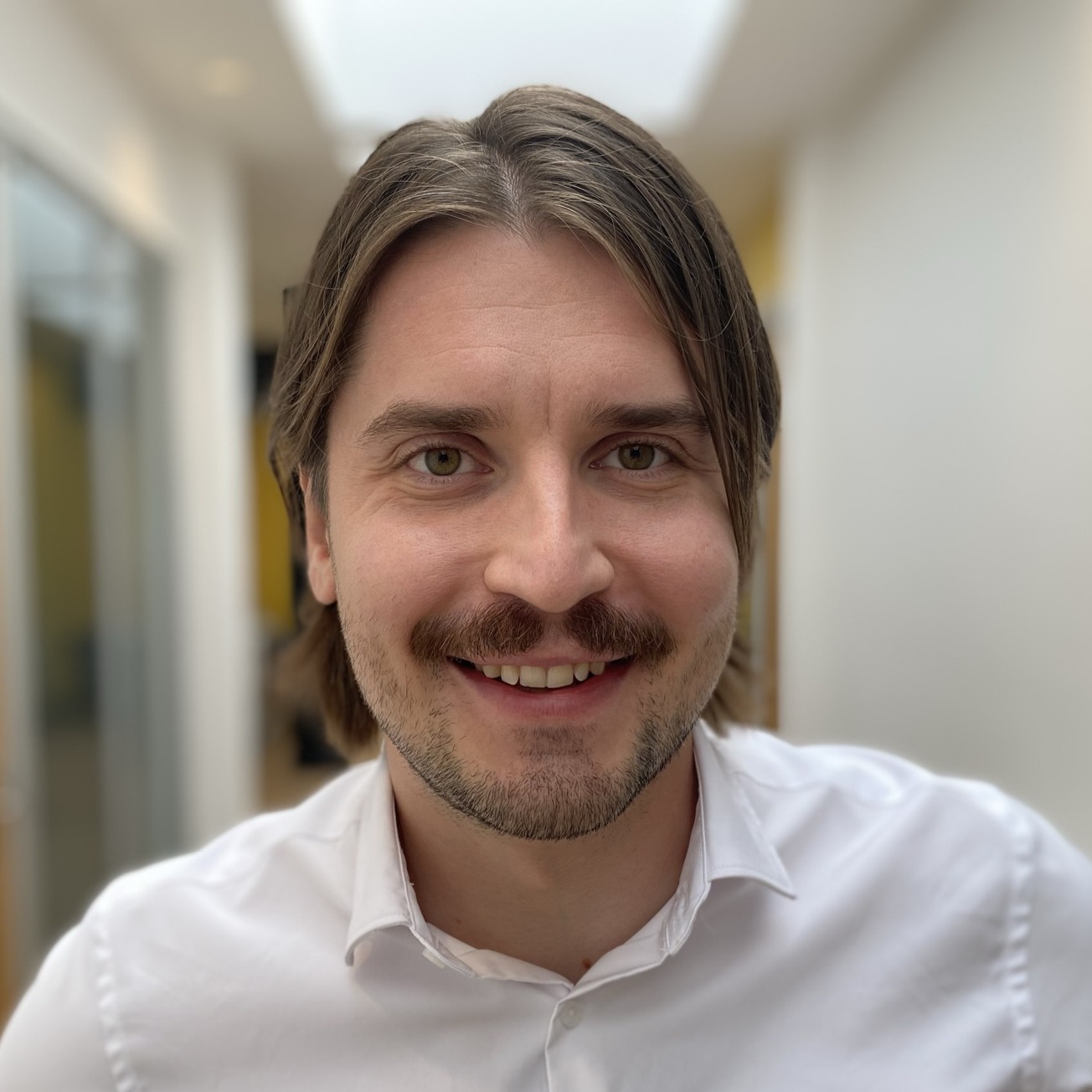
Dr Maksym SichAegiq 
Dr Maksym SichAegiq Maksym (Max) is co-founder and CEO of Aegiq. Having started as a quantum physicist and Doctoral Prize Fellow, he is a serial entrepreneur in deep tech with experience across different sectors including aerospace and hi-end manufacturing. He co-founded Aegiq on a mission to move humanity beyond the limits of digital technology. Max holds a PhD in Physics from University of Sheffield as well as a number of awards for his academic research and a BSc in Economics and Finance from LSE. |
| 14:20-14:35 |
The role of metrology in making quantum technologies scale
Different quantum technologies require different scale to be useful. In any case, scale-up is not just a matter of making more qubits, but also a matter of making each of them – and all of them together – well. Metrology has an important role to play in evaluating the performance of quantum technologies all the way from relevant materials to systems. Relevant tests and procedures for the characterization of optical components for use in quantum key distribution systems have already been standardized. Other less mature technologies such as quantum computing also require characterization, benchmarking, and evaluation — both platform-specific and agnostic — to inform development and prioritize investment in supply chains and final products. Among other advancements, this calls for a new generation of in-operando metrology, and I will give examples of relevant work in this direction. 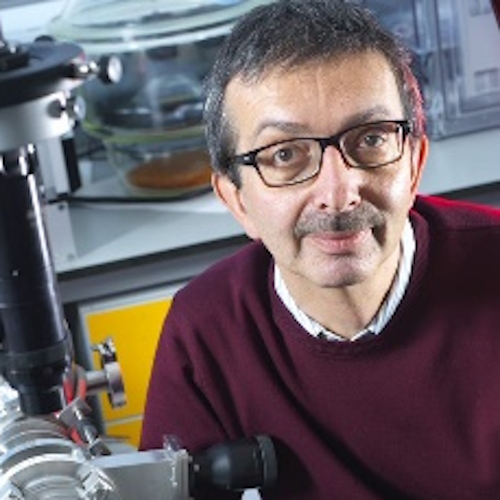
Professor Alexander TzalenchukNPL & Royal Holloway, University of London 
Professor Alexander TzalenchukNPL & Royal Holloway, University of London Alexander Tzalenchuk is a Fellow at the UK National Physical Laboratory (NPL). He also holds a Chair in physics at University of London’s Royal Holloway College. During his career Alexander has been involved in projects concerning quantum metrology, magnetic and superconducting macroscopic quantum systems, single particle detection, terahertz photon counting, scanning probe microscopy. His current focus is physics of advanced materials in application to quantum electrical metrology and research underpinning scalability of quantum computers and networks. Alexander plays a leading role in the NPL quantum programme and has become a founding member of the Technical Committee “Quantum Measurement and Quantum Information” of the International Measurement Confederation (IMEKO). He has established a lecture course “Frontiers of Metrology” at Royal Holloway. |
| 14:35-14:45 |
Q&A
|
Chair
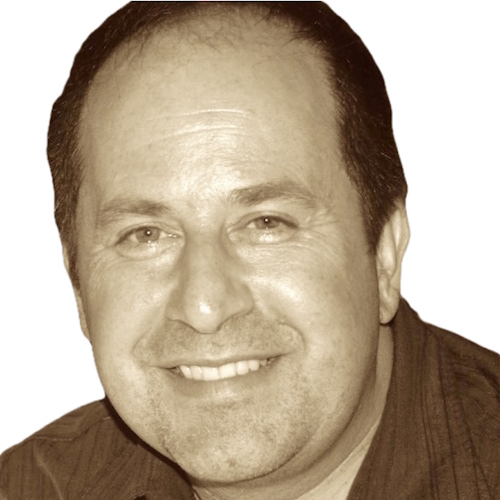
Professor Roberto Desimone
Plantagenet Systems

Professor Roberto Desimone
Plantagenet Systems
Roberto Desimone has a proven track record both in industry and academia, having pursued research and innovation for over 40 years in artificial intelligence (AI), machine learning (ML), and quantum computing, especially for applications to military decision-making for command/control and intelligence; global crisis response management/wargaming; cyber/financial threat analysis/mitigation; and dynamic logistics scheduling. He has recently retired from BAE Systems Applied Intelligence, where he led their Strategic Innovation (Disruptive Technologies) programme for over 11 years, and is now consulting on the commercialisation of quantum technology at Plantagenet Systems (founding director). He has a BSc in ElecEng (Bath University, 1978-82), and PhD in AI/Machine learning (Edinburgh University, 1984-87). He pursued postdoctoral applied research in the AI Applications Institute (Edinburgh, 1987-90), and Stanford Research Institute (California, 1990-95), where he worked for DARPA programs for Operation Desert Storm (1991-92). He was also a Royal Society Entrepreneur in Residence (EiR) within the Quantum Engineering Technology Lab at Bristol University (2019-22) and is currently a visiting professor in Quantum Systems Engineering at Loughborough University, and was formerly a visiting professor in AI at Cranfield University (National Defence Academy, Shrivenham, 2002-09).
| 15:15-15:25 |
Introduction to Panel discussion

Professor Roberto DesimonePlantagenet Systems 
Professor Roberto DesimonePlantagenet Systems Roberto Desimone has a proven track record both in industry and academia, having pursued research and innovation for over 40 years in artificial intelligence (AI), machine learning (ML), and quantum computing, especially for applications to military decision-making for command/control and intelligence; global crisis response management/wargaming; cyber/financial threat analysis/mitigation; and dynamic logistics scheduling. He has recently retired from BAE Systems Applied Intelligence, where he led their Strategic Innovation (Disruptive Technologies) programme for over 11 years, and is now consulting on the commercialisation of quantum technology at Plantagenet Systems (founding director). He has a BSc in ElecEng (Bath University, 1978-82), and PhD in AI/Machine learning (Edinburgh University, 1984-87). He pursued postdoctoral applied research in the AI Applications Institute (Edinburgh, 1987-90), and Stanford Research Institute (California, 1990-95), where he worked for DARPA programs for Operation Desert Storm (1991-92). He was also a Royal Society Entrepreneur in Residence (EiR) within the Quantum Engineering Technology Lab at Bristol University (2019-22) and is currently a visiting professor in Quantum Systems Engineering at Loughborough University, and was formerly a visiting professor in AI at Cranfield University (National Defence Academy, Shrivenham, 2002-09). |
|---|---|
| 15:25-16:25 |
Quantum innovation - what support is needed?
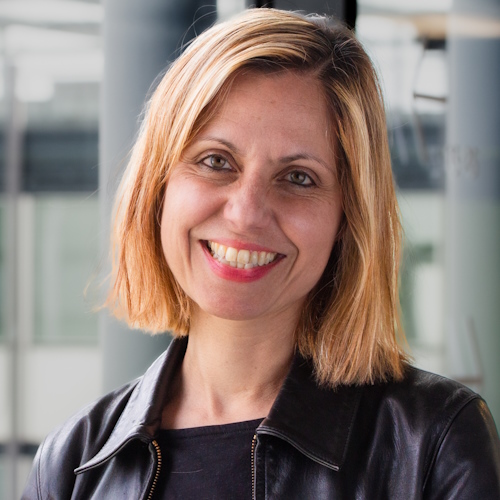
Professor Eleni DiamantiCNRS & Sorbonne University 
Professor Eleni DiamantiCNRS & Sorbonne University Eleni Diamanti is CNRS research director at the LIP6 laboratory of Sorbonne University in Paris. She received her PhD in Electrical Engineering from Stanford University in 2006 and performed her postdoc as a Marie Curie fellow at the Institute of Optics Graduate School in Palaiseau before joining the CNRS in 2009. Her research focuses on experimental quantum cryptography and communication, and on the development of photonic resources and applications for quantum networks. She is a recipient of a European Research Council Starting Grant, coordinator of the Paris Centre for Quantum Technologies, and was awarded the CNRS Silver and Innovation Medals in 2024. She is also cofounder and scientific advisor of the start-up company Welinq that specializes in quantum interconnect technology. 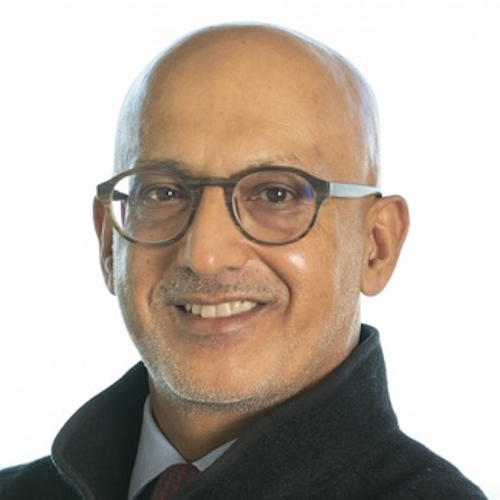
Ilyas KhanQuantinuum 
Ilyas KhanQuantinuum Ilyas founded Cambridge Quantum in 2014 and was the founding CEO of Quantinuum, the company created as a result of the merger of Honeywell Quantum Solutions and Cambridge Quantum. As well as being Vice-Chairman of the board of directors, he is also the Chief Product Officer of Quantinuum and part of the executive leadership team of the company. He is the Leader in Residence at the University of Cambridge’s Judge Business School where he was instrumental in establishing the highly regarded Accelerate Cambridge program of investment in early-stage Cambridge-based deep-science technology sector companies. Ilyas was the inaugural Chairman of The Stephen Hawking Foundation, holding the post until 2019. He is also the founding Chairman (non-executive) of the Topos Institute. He is also a fellow of St Edmund’s College, Cambridge. Ilyas is recognised as one of the founders and leading voices in the quantum computing industry globally. 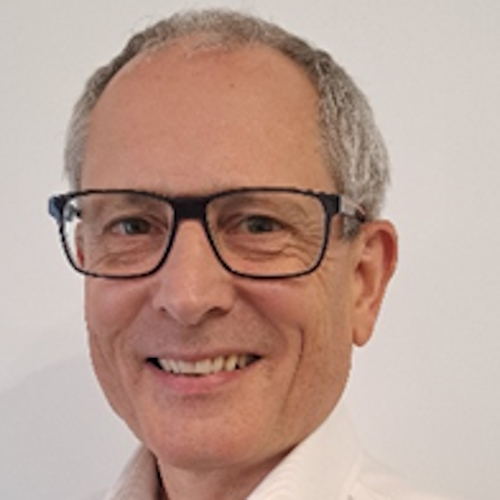
Jonathan Legh-SmithUKQuantum 
Jonathan Legh-SmithUKQuantum Jonathan Legh-Smith is Executive Director for UKQuantum, the association for the UK’s quantum industry. Jonathan is responsible for the strategic direction of the association and representing the interests of UKQuantum members nationally and internationally. Jonathan is also a member of the UK National Quantum Technologies Programme Strategic Advisory Board, the National Quantum Computing Centre Technical Advisory Group and NPL’s Quantum Metrology Institute Advisory Board. Jonathan has extensive experience as an R&D and Innovation Executive, covering policy, strategy and programme management. Previously, Jonathan was Principal, Scientific Affairs for BT and directed BT’s Strategic Research programme for over 10 years including BT’s academic and industrial research partnerships; he was also BT’s Head of Standards. Jonathan was awarded an MBE for services to science & technology in 2024. 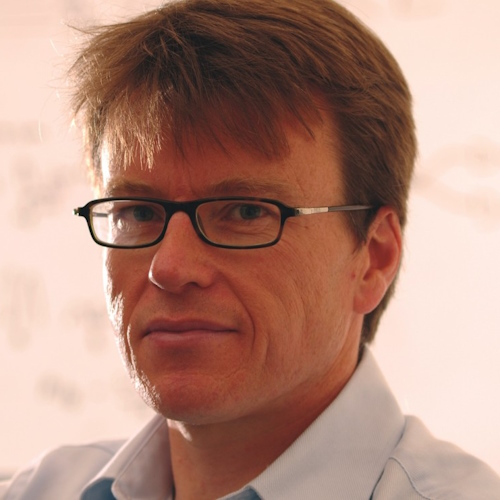
Dr Andrew ShieldsToshiba Europe 
Dr Andrew ShieldsToshiba Europe Andrew leads the quantum technology business in Toshiba, which is commercialising quantum safe communications from their sites in Cambridge, UK and Tokyo, Japan. Previously he led R&D in Toshiba on quantum technology, publishing over 500 research papers and patents in this field. He was a co-founder of the Industry Specification Group for QKD at ETSI and served as Chair for several years. He is a fellow of the Royal Academy of Engineering and has been awarded the Mott (2013) and Katharine Burr Blodgett (2022) Medals by the Institute of Physics |
Chair

Professor Roberto Desimone
Plantagenet Systems

Professor Roberto Desimone
Plantagenet Systems
Roberto Desimone has a proven track record both in industry and academia, having pursued research and innovation for over 40 years in artificial intelligence (AI), machine learning (ML), and quantum computing, especially for applications to military decision-making for command/control and intelligence; global crisis response management/wargaming; cyber/financial threat analysis/mitigation; and dynamic logistics scheduling. He has recently retired from BAE Systems Applied Intelligence, where he led their Strategic Innovation (Disruptive Technologies) programme for over 11 years, and is now consulting on the commercialisation of quantum technology at Plantagenet Systems (founding director). He has a BSc in ElecEng (Bath University, 1978-82), and PhD in AI/Machine learning (Edinburgh University, 1984-87). He pursued postdoctoral applied research in the AI Applications Institute (Edinburgh, 1987-90), and Stanford Research Institute (California, 1990-95), where he worked for DARPA programs for Operation Desert Storm (1991-92). He was also a Royal Society Entrepreneur in Residence (EiR) within the Quantum Engineering Technology Lab at Bristol University (2019-22) and is currently a visiting professor in Quantum Systems Engineering at Loughborough University, and was formerly a visiting professor in AI at Cranfield University (National Defence Academy, Shrivenham, 2002-09).
| 09:30-09:35 |
Welcome & opening remarks

Professor Elham KashefiUniversity of Edinburgh / Sorbonne University / National Quantum Computing Centre 
Professor Elham KashefiUniversity of Edinburgh / Sorbonne University / National Quantum Computing Centre Elham Kashefi (FRSE) is a Professor of Quantum Computing at the University of Edinburgh and CNRS Director of Research at Sorbonne Universite and NQCC Chief scientist. She has pioneered transdisciplinary research on the structure, behaviour, and interactions of quantum technology, from formal and foundational aspects all the way to actual industrial use-case delivery (co-founder of VeriQloud). Kashefi's research team innovates across a broad range of platforms (photonic, superconducting, ion trap) with an integrated software research programme (simulation, modelling and benchmarking) delivering impact in quantum computing (machine learning, cryptanalysis) and quantum networks (quantum cryptography, quantum cloud computing) in a certifiable way (provable security and verification of computation). |
|---|---|
| 09:35-09:40 |
Introduction to keynote
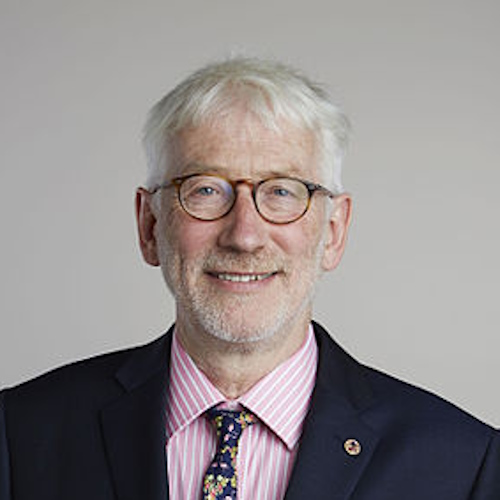
Professor John G. Rarity FRSUniversity of Bristol 
Professor John G. Rarity FRSUniversity of Bristol John G. Rarity FRS is a leading expert in quantum technologies at the University of Bristol where he has been a professor since 2003 and acting as director of QET Labs and Photonics and Quantum group 2017-Dec 2020. He is an international expert on quantum optics, communications and sensing exploiting single photons and entanglement. He pioneered early experiments in path entanglement, quantum key distribution and quantum metrology. In recent years he has worked on quantum technologies applied to low cost consumer key sharing, long rang key sharing to satellites, chip scale multiphoton quantum information processing and quantum enhanced rangefinding and remote gas sensing. In recognition of his early work in quantum optics he was awarded the 1994 IOP Thomas young medal and for his early quantum communications work he was recently awarded the 2023 Micius prize. |
| 09:40-10:10 |
Quantum entanglement and beyond
Quantum entanglement reflects the essential differences between classical and quantum physics. The nonlocality and intrinsic randomness of quantum entanglement not only deepen our understanding of the laws of quantum world, but also give rise to emerging quantum information technologies, including quantum communication and quantum computation, which can ensure secure information exchange and greatly enhance the computing power, respectively. I will introduce how to experimentally test quantum entanglement and how to turn quantum information technology from purely theoretical concepts into reality. Specifically, how to overcome the security loopholes caused by imperfection of realistic devices, how to extend the distance of quantum communication, and how to use the coherent manipulation of multiple qubits to achieve a quantum computer that can surpass classical supercomputers. I will also introduce the future prospects of the global quantum communication network and its new applications in the field of quantum metrology, as well as the development roadmap of quantum computing. 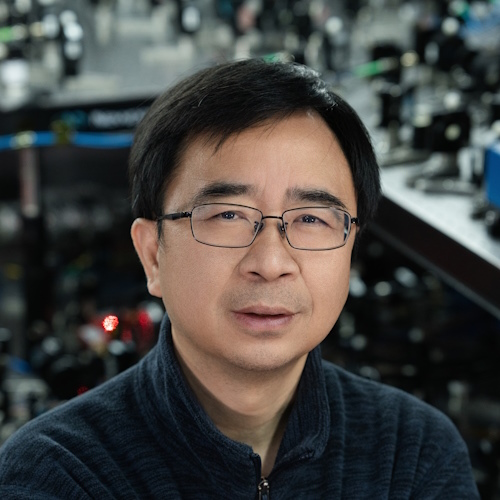
Professor Jian-Wei PanUniversity of Science and Technology of China 
Professor Jian-Wei PanUniversity of Science and Technology of China Jian-Wei Pan, born on 11 March 1970, received his Bachelor (1992) and Master (1995) in Physics from the University of Science and Technology of China (USTC), and his PhD (1999) from the University of Vienna. He is currently a Professor of Physics of the USTC, an Academician of Chinese Academy of Sciences, a Fellow of the World Academy of Sciences, and a Fellow of the Royal Society. Jian-Wei Pan’s research fields focus on quantum foundations, quantum optics and quantum information. He has authored more than 400 articles which have attracted more than 73000 citations (Google scholar). Pan has won First Prize of National Prize for Natural Sciences of China, Future Science Prize in Physical Sciences, Willis E. Lamb Award, Newcomb Cleveland Prize form American Association for the Advancement of Science, R. W. Wood Prize from Optical Society of America, Micius Quantum Prize and Zeiss Research Award, and was selected by Nature as “people of the year” in 2017 who “took quantum communication to space and back”. |
| 10:10-10:20 |
Q&A
|
Chair

Professor Martin Dawson FRS
University of Strathclyde

Professor Martin Dawson FRS
University of Strathclyde
Martin Dawson is professor and director of research at the University of Strathclyde’s Institute of Photonics, which he helped establish almost 25 years ago. Since 2012 he has also been the inaugural Head of the Fraunhofer Centre for Applied Photonics (Fraunhofer CAP) in Glasgow. Martin has contributed broadly to laser and semiconductor research including ultrafast lasers, optically-pumped semiconductor lasers, diamond photonics and micro-LEDs, the latter of which is now emerging globally as a new form of commercial display technology. He holds fellowships of the IEEE, OSA, Institute of Physics and Royal Society of Edinburgh, and he has been awarded the Dennis Gabor Medal and Prize of the IOP and the Aron Kressel Award of the IEEE.
| 10:20-10:25 |
Introduction to Session 4

Professor Martin Dawson FRSUniversity of Strathclyde 
Professor Martin Dawson FRSUniversity of Strathclyde Martin Dawson is professor and director of research at the University of Strathclyde’s Institute of Photonics, which he helped establish almost 25 years ago. Since 2012 he has also been the inaugural Head of the Fraunhofer Centre for Applied Photonics (Fraunhofer CAP) in Glasgow. Martin has contributed broadly to laser and semiconductor research including ultrafast lasers, optically-pumped semiconductor lasers, diamond photonics and micro-LEDs, the latter of which is now emerging globally as a new form of commercial display technology. He holds fellowships of the IEEE, OSA, Institute of Physics and Royal Society of Edinburgh, and he has been awarded the Dennis Gabor Medal and Prize of the IOP and the Aron Kressel Award of the IEEE. |
|---|---|
| 10:25-10:40 |
Photonic quantum information processing and sensing: future challenges
Over 30 years ago we moved from trying to prove the counter intuitive correlations predicted by quantum mechanics are correct when Artur Ekert showed we could use them to generate secure truly random bit strings (keys) at remote locations. Later the concept of Qubits and gates led Schor to discover exponential speed up is possible. Since then astounding experimental progress has led to intermediate scale quantum computing demonstrators showing quantum supremacy in hero experiments. The ability to scale without incurring debilitating errors and loss beyond 100 physical Qubits is now the remaining challenge. Here I will focus on integrated quantum photonics with high gate fidelity but low efficiency. I will discuss possible directions that may make this approach scalable in the future. Other quantum photonic technologies exploit quantum entanglement in imaging, sensing and rangefinding. I will show that in practice the large sensitivity gains come from using photon counting detectors in rangefinding and gas sensing applications. 
Professor John G. Rarity FRSUniversity of Bristol 
Professor John G. Rarity FRSUniversity of Bristol John G. Rarity FRS is a leading expert in quantum technologies at the University of Bristol where he has been a professor since 2003 and acting as director of QET Labs and Photonics and Quantum group 2017-Dec 2020. He is an international expert on quantum optics, communications and sensing exploiting single photons and entanglement. He pioneered early experiments in path entanglement, quantum key distribution and quantum metrology. In recent years he has worked on quantum technologies applied to low cost consumer key sharing, long rang key sharing to satellites, chip scale multiphoton quantum information processing and quantum enhanced rangefinding and remote gas sensing. In recognition of his early work in quantum optics he was awarded the 1994 IOP Thomas young medal and for his early quantum communications work he was recently awarded the 2023 Micius prize. |
| 10:40-10:55 |
Quantum learning machines.
Why does AI consume so much energy? What are the physical constraints on machines that learn? I will discuss the thermodynamics of learning machines with a particular emphasis on experimental implementations using superconducting circuits and nano electronics. Quite apart from a thermodynamic advantage, does quantum offer any computational advantage? Current indications suggest that while quantum offers energy efficiency it may not give a computational advantage. I will offer a more optimistic assessment based on recent work in quantum chaos. 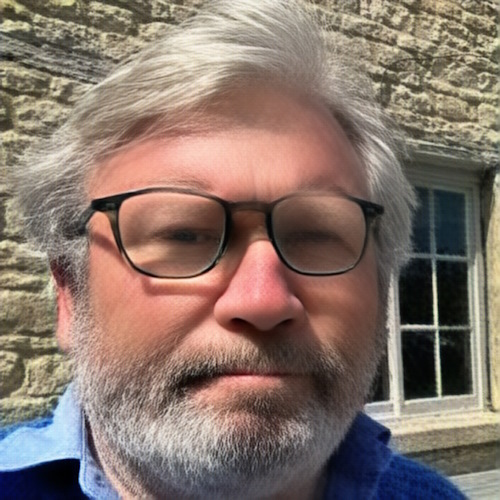
Gerard MilburnThe University of Sussex 
Gerard MilburnThe University of Sussex Gerard Milburn obtained a PhD in theoretical Physics from the University of Waikato in 1982. In 1994 he was appointed Professor in Physics at The University of Queensland. He is currently a Fellow at The National Quantum Computing Centre, UK and the University of Sussex. He has worked in the fields of quantum optics, quantum stochastic processes, atom optics, quantum control and most recently in engineered quantum systems including opto mechanics and superconducting quantum circuits. Gerard Milburn is a Fellow of the Royal Society, the Australian Academy of Science and the American Physical Society. He is the author of five books including Quantum Optics (with Dan Walls), Quantum Measurement and Control (with Howard Wiseman) and Quantum Opto mechanics (with Warwick Bowen). |
| 10:55-11:05 |
Q&A
|
Chair
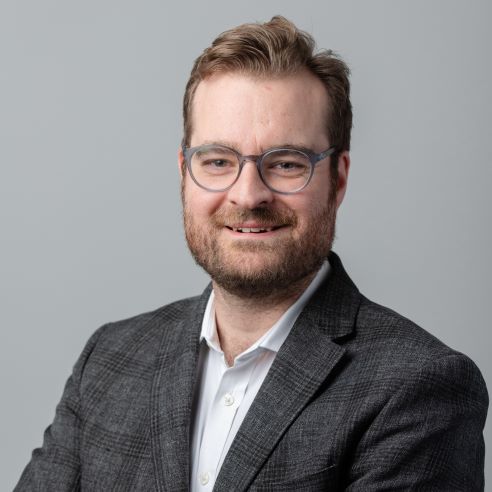
Professor Jonathan Matthews, School of Physics, University of Bristol, UK

Professor Jonathan Matthews, School of Physics, University of Bristol, UK
Jonathan Matthews is a Professor of Quantum Photonics and Co-Director of The Quantum Engineering and Technology Laboratories at the University of Bristol, where he leads a quantum enhanced sensing activity. His early research efforts focused on integrated quantum photonics, e.g. silica waveguides to control photonic quantum states for primitive quantum information demonstrators and higher refractive index contrast waveguide arrays for multi-photon quantum walks. His current efforts focus on discrete and continuous variables strategies to perform quantum sensing and imaging, and the development of CV capabilities in silicon photonics. His research is supported by an EPSRC early career fellowship, an ERC starting grant and the Quantic quantum-imaging hub.
| 11:35-11:40 |
Introduction to Session 5

Professor Jonathan Matthews, School of Physics, University of Bristol, UK

Professor Jonathan Matthews, School of Physics, University of Bristol, UKJonathan Matthews is a Professor of Quantum Photonics and Co-Director of The Quantum Engineering and Technology Laboratories at the University of Bristol, where he leads a quantum enhanced sensing activity. His early research efforts focused on integrated quantum photonics, e.g. silica waveguides to control photonic quantum states for primitive quantum information demonstrators and higher refractive index contrast waveguide arrays for multi-photon quantum walks. His current efforts focus on discrete and continuous variables strategies to perform quantum sensing and imaging, and the development of CV capabilities in silicon photonics. His research is supported by an EPSRC early career fellowship, an ERC starting grant and the Quantic quantum-imaging hub. |
|---|---|
| 11:40-11:55 |
Quantum sensing in the life sciences
Quantum sensors based on optically addressable spins in solids and on atomic vapour cells can offer unprecedented sensitivity and spatial resolution. In recent years, their application to life sciences and the bio-medical field has led to new opportunities and promises to offer dramatically enhanced early diagnosis technologies. In the UK, this effort is accelerating through the newly established Quantum Technologies Hubs. The Q-BIOMED Hub in particular is focused on delivering the quantum-enabled future of early disease diagnosis and treatment. I will present an overview of our Hub, along with some recent highlights of nanoscale quantum sensing from our group in Cambridge. I will also show how very similar devices can be used both for quantum sensing and for quantum simulation applications. 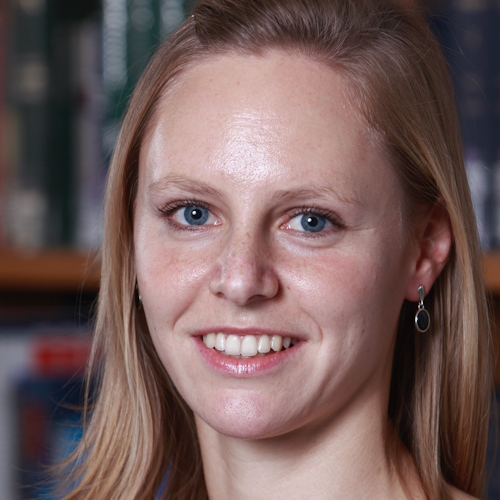
Dr Helena KnowlesUniversity of Cambridge 
Dr Helena KnowlesUniversity of Cambridge Helena Knowles is Assistant Professor and Royal Society Research Fellow at the Department of Physics, University of Cambridge. |
| 11:55-12:10 |
What Quantum Technology can still teach us about Foundations
The Year of Quantum celebrates the 100-year anniversary of the initial development of quantum mechanics — a paradigm shift which raised serious questions about our classical understanding of reality. Some of these questions were formalised by John Bell in his famous theorem, which was conclusively validated in favour of “quantum reality” only a decade ago. In this brief talk I will argue that this was not an end but a new beginning for further discovery on the big foundational questions which have been driving quantum technology research and vice versa. I will review several research strands that have plugged away at the question of which classical concepts are ultimately at odds with quantum mechanics and will outline how rapidly improving quantum technology will help us obtain more conclusive answers. 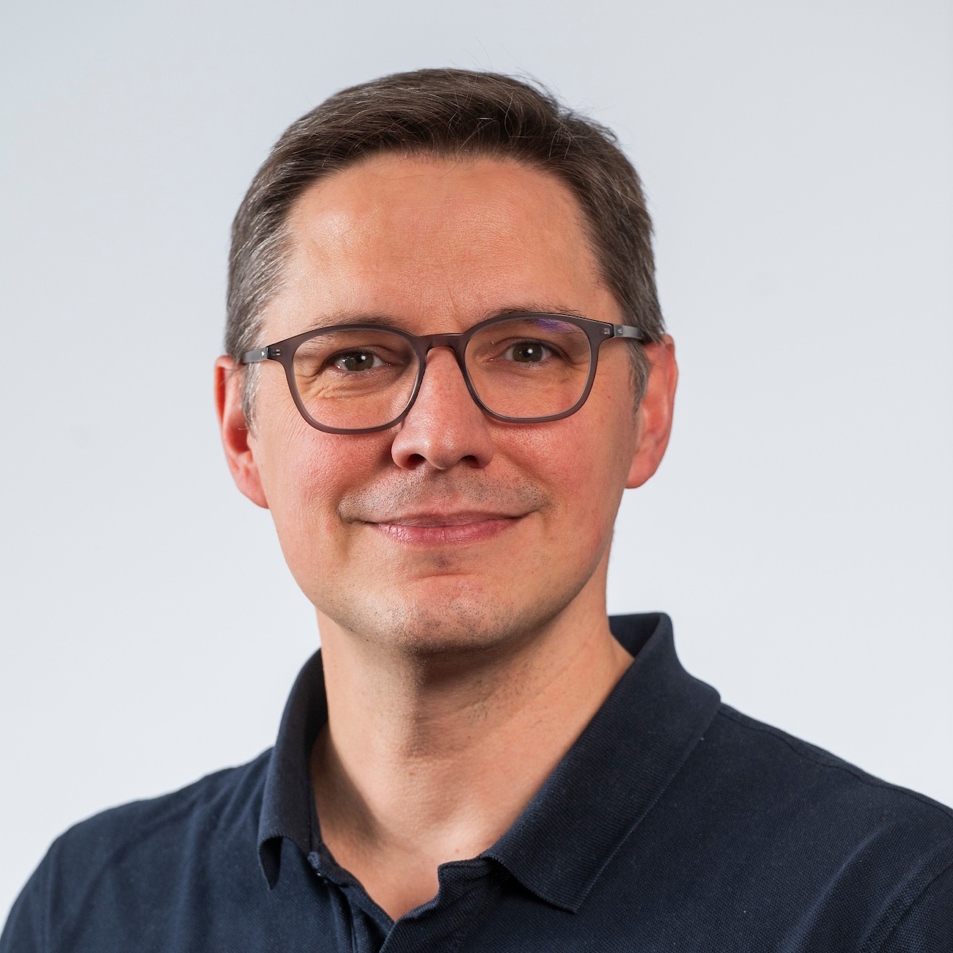
Professor Alessandro FedrizziHeriot-Watt University 
Professor Alessandro FedrizziHeriot-Watt University Alessandro Fedrizzi has spent the past 20 years pioneering photonic quantum technologies for both foundational research and applications in quantum computing, communication, and sensing. He completed his PhD in 2008 under Nobel Laureate Anton Zeilinger and then conducted seven years of research as a fellow at the University of Queensland, Australia. He joined Heriot-Watt University in Edinburgh in 2015, where he is now a professor in the Institute of Photonics & Quantum Sciences. Alessandro's work focuses on advancing quantum light sources for applications in quantum networking and satellite-based quantum communication. He is a co-director of the Integrated Quantum Networks (IQN) Hub (IQN) and the EPSRC Doctoral Training Centre in Applied Quantum Technologies. |
| 12:10-12:25 |
Seeing in 3D through an endoscope-like instrument the thickness of a single human hair
Traditional endoscopes use bundles of optical fibres to relay an image, pixel by pixel along their length. Typically these bundles total a few millimetres in diameter, setting a limit to which they perturb the system into which they are inserted. In recent years several groups, including ourselves, have shown it possible to use holographic techniques to shape laser beams in such a way as to create endoscopic systems using only a single optical fibre the width of a human hair, thereby making the endoscope minimally invasive. Moving to the quantum realm we measure the arrival time of individual photons which, knowing the speed of light, allows us to create 3D images giving improved imaging, especially in complicated environments. We are currently working in several application areas with an interest in looking for more, especially those within a clinical setting. 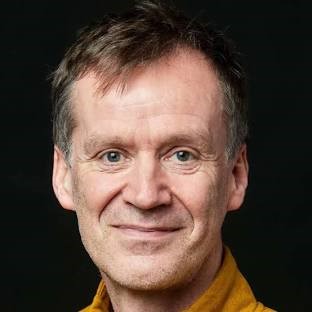
Professor Miles Padgett FRSUniversity of Glasgow 
Professor Miles Padgett FRSUniversity of Glasgow Miles Padgett is a Royal Society Research Professor and also holds the Kelvin Chair of Natural Philosophy at the University of Glasgow. His research team covers all things optical, from the basic ways in which light behaves as it pushes and twists the world around us, to the application of new optical techniques in imaging and sensing. They are currently using the classical and quantum properties of light to explore: the laws of quantum physics in accelerating frames, microscopes that see through noise, shaped light that overcomes diffraction-limited resolution and endoscopes the width of a human hair. He is a Fellow both of the Royal Society of Edinburgh and the Royal Society, in addition to subject specialist societies. He has won various national and international prizes (see below) including, in 2019, the Rumford Medal of the Royal Society and in 2021 the Quantum Electronics and Optics Prize of the European Physical Society. Since 2019 he has been identified by Web of Science as a globally highly-cited researcher. |
| 12:25-12:35 |
Q&A
|
Chair

Professor Leigh Lapworth
Rolls-Royce plc

Professor Leigh Lapworth
Rolls-Royce plc
Prof Leigh Lapworth is a Rolls-Royce Engineering Fellow specialising in Computational Science with over 30 years’ experience of developing and applying physics-based simulation using High Performance Supercomputers. He led the development of the Rolls-Royce corporate CFD (Computational Fluid Dynamics). Other previous roles include Chief Design Systems Architect and Head of Computational Science. He has led several successful industrial-academic collaborative research projects. The most recent being a pre-exascale EPSRC Prosperity Partnership. Leigh leads the Rolls-Royce Quantum Computing initiative. To date this includes three Innovate UK co-funded projects and a small portfolio of directly funded projects with national and international partners. These focus on algorithms for error corrected computers and the hybrid classical-quantum interface.
Leigh is a Chartered Mathematician and Fellow of the Institute of Mathematics and its Applications and an Honorary Professorial Fellow in Computer Science at the University of Warwick.
| 13:35-13:40 |
Introduction to Session 6

Professor Leigh LapworthRolls-Royce plc 
Professor Leigh LapworthRolls-Royce plc Prof Leigh Lapworth is a Rolls-Royce Engineering Fellow specialising in Computational Science with over 30 years’ experience of developing and applying physics-based simulation using High Performance Supercomputers. He led the development of the Rolls-Royce corporate CFD (Computational Fluid Dynamics). Other previous roles include Chief Design Systems Architect and Head of Computational Science. He has led several successful industrial-academic collaborative research projects. The most recent being a pre-exascale EPSRC Prosperity Partnership. Leigh leads the Rolls-Royce Quantum Computing initiative. To date this includes three Innovate UK co-funded projects and a small portfolio of directly funded projects with national and international partners. These focus on algorithms for error corrected computers and the hybrid classical-quantum interface. Leigh is a Chartered Mathematician and Fellow of the Institute of Mathematics and its Applications and an Honorary Professorial Fellow in Computer Science at the University of Warwick. |
|---|---|
| 13:40-13:55 |
Are we nearly there yet?
Following exciting recent progress in the development of quantum hardware, multiple quantum technology platforms have executed computations which are apparently beyond the capability of the world's best classical computers to reproduce. However, there has as yet been no unambiguous demonstration of "quantum advantage": quantum computing solving a problem of outside interest better than classical computers can. In this talk, I will discuss the prospects for achieving quantum advantage in the near future, and the essential role played by the development of efficient quantum algorithms. 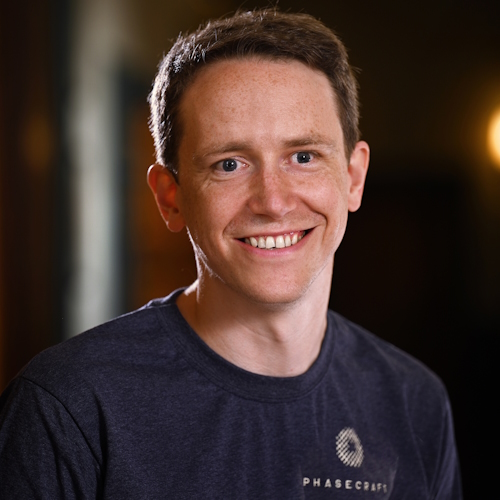
Professor Ashley MontanaroPhasecraft 
Professor Ashley MontanaroPhasecraft Ashley has worked in the field of quantum computing for 20 years, specialising in quantum algorithms and quantum computational complexity, and has published over 50 papers on this topic. He holds a PhD in quantum computing from the University of Bristol and is Professor of Quantum Computation there. Ashley was awarded a Whitehead Prize in 2017 by the London Mathematical Society and was awarded an ERC Consolidator Grant in 2018. He has served on the Steering Committee of the international conference on Quantum Information Processing (QIP), was a Founding Editor of the journal Quantum, and was a cofounder of the Quantum Computing Theory in Practice conference series. Ashley cofounded Phasecraft with Toby Cubitt and John Morton to develop breakthrough quantum algorithms to get the most out of near-term quantum computers.. |
| 13:55-14:10 |
Beyond NISQ – what will we find on the pathway to a terra-QuOp?
The speaker will describe the role of National Quantum Computing Centre and its flagship QC testbed programme; its test and evaluation programme, user engagement programme and role in supporting the UK Quantum Missions. The speaker will identify a number of key milestones and ambition for Mission 1: by 2035, there will be accessible, UK-based quantum computers capable of running 1 trillion operations[1] and supporting applications that provide benefits well in excess of classical supercomputers across key sectors of the economy. 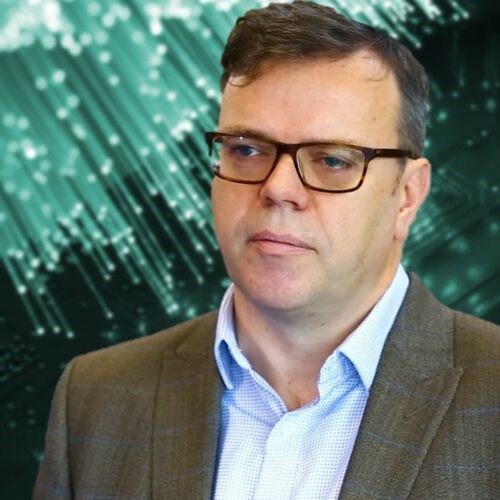
Dr Michael N CuthbertNational Quantum Computing Centre 
Dr Michael N CuthbertNational Quantum Computing Centre Michael is the founding Director of the National Quantum Computing Centre based at Harwell in Oxfordshire. With a background in superconductivity and cryogenic systems, prior to joining NQCC, Michael had a number of technical and commercial leadership roles with Oxford Instruments in Japan, the US and the UK, most recently as Head of Quantum Technologies. Michael is a member of the Institute of Physics and sits on several advisory panels, including the NQTP Programme Board, NPL Science & Technology Advisory Council, CORNERSTONE External Advisory Board and Cancer Research UK Research Data Advisory Board. Michael is Aegis Professor in Quantum Technologies at the University of Bristol. |
| 14:10-14:25 |
The role of photonics in real-world deployment of quantum technologies
Often the most ambitious challenges in quantum science are in transitioning technologies from the laboratory to real-world deployment, to meet predictions of societal benefit. Achieving this will rely critically on advances in photonics. Here I will briefly review recent innovations in key underpinning photonics technologies such as narrow-linewidth lasers, frequency combs and integrated photonics for high-precision quantum sensors, optical clocks, and interferometry. These innovations are already driving breakthroughs in navigation, Earth observation, medical diagnostics, and fundamental physics. I will discuss how photonics is addressing scalability, stability, and integration challenges, paving the way for deployable quantum technologies that will revolutionise scientific and industrial applications. 
Professor Jennifer E. HastieUniversity of Strathclyde 
Professor Jennifer E. HastieUniversity of Strathclyde Professor Jennifer Hastie is Director of the Institute of Photonics at the University of Strathclyde, an applied research unit and cost centre within the Department of Physics with more than 70 staff and postgraduate students conducting research in Advanced Lasers, Photonic Integration and Devices, Neurophotonics, and Optical Wireless Communications. She leads the Institute’s research in high brightness lasers with a primary interest in meeting the challenging laser performance requirements for cutting-edge applications in metrology and quantum technology, and from 2014-2024 she was on the Management Board of the National Quantum Technology Hub for Sensing & Timing. She is Deputy Principal Investigator of the EPSRC-funded programmes the Photonics & Quantum Accelerator and the National Hub for Quantum Enabled Position, Navigation, and Timing. In 2023 she was elected a Fellow of Optica for “leadership in the photonics and quantum technology community and pioneering technical contributions in the area of narrow-linewidth lasers.” |
| 14:25-14:35 |
Q&A
|
Chair
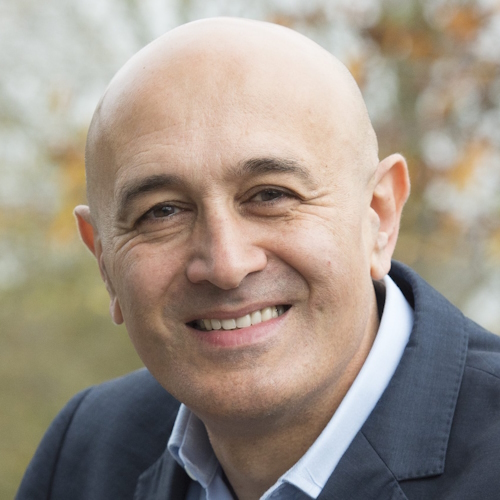
Professor Jim Al-Khalili
University of Surrey

Professor Jim Al-Khalili
University of Surrey
Jim Al-Khalili CBE FRS HonFREng is an academic, author, broadcaster and well-known science communicator. He is currently Distinguished Emeritus Professor of Physics at the University of Surrey where he continues his research in open quantum systems, the foundations of quantum mechanics and quantum biology. Along with around 150 peer-reviewed research papers, he has written fifteen books, between them translated into over twenty-six languages. His book on Medieval Arabic Science, Pathfinders, was shortlisted for the Warwick Prize latest book, and his 2020 book, The World According to Physics, was shortlisted for the Royal Society Book Prize. He is currently writing a popular science book on the nature of time. As a broadcaster, he is a regular presenter of TV science documentaries, such as Atom, Shock and Awe: the Story of Electricity and the Bafta nominated Chemistry: a volatile history. He is probably best-known in the UK for his long-running BBC Radio 4 programme, The Life Scientific. Jim is a past president of both the British Science Association and Humanists UK and is a recipient of the Royal Society Michael Faraday medal and the Wilkins-Bernal-Medawar medal, the Institute of Physics Kelvin Medal and the Stephen Hawking medal and has received honorary doctorates from nine UK universities. He is a trustee and commissioner on the board of the 1851 Royal Commission and a Fellow of the Science Museums Group.
| 15:05-15:15 |
Introduction to Panel discussion

Professor Jim Al-KhaliliUniversity of Surrey 
Professor Jim Al-KhaliliUniversity of Surrey Jim Al-Khalili CBE FRS HonFREng is an academic, author, broadcaster and well-known science communicator. He is currently Distinguished Emeritus Professor of Physics at the University of Surrey where he continues his research in open quantum systems, the foundations of quantum mechanics and quantum biology. Along with around 150 peer-reviewed research papers, he has written fifteen books, between them translated into over twenty-six languages. His book on Medieval Arabic Science, Pathfinders, was shortlisted for the Warwick Prize latest book, and his 2020 book, The World According to Physics, was shortlisted for the Royal Society Book Prize. He is currently writing a popular science book on the nature of time. As a broadcaster, he is a regular presenter of TV science documentaries, such as Atom, Shock and Awe: the Story of Electricity and the Bafta nominated Chemistry: a volatile history. He is probably best-known in the UK for his long-running BBC Radio 4 programme, The Life Scientific. Jim is a past president of both the British Science Association and Humanists UK and is a recipient of the Royal Society Michael Faraday medal and the Wilkins-Bernal-Medawar medal, the Institute of Physics Kelvin Medal and the Stephen Hawking medal and has received honorary doctorates from nine UK universities. He is a trustee and commissioner on the board of the 1851 Royal Commission and a Fellow of the Science Museums Group. |
|---|---|
| 15:15-16:15 |
What is the future of quantum?
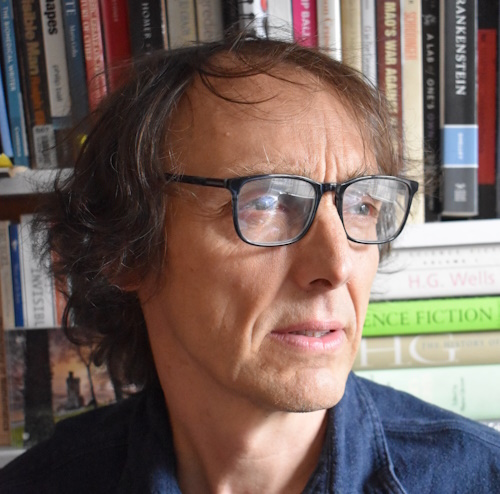
Dr Philip BallFreelance writer 
Dr Philip BallFreelance writer Philip Ball is a freelance writer and broadcaster, and was an editor at Nature for more than twenty years. He writes regularly in the scientific and popular media and has written many books on the interactions of the sciences, the arts, and wider culture, including H2O: A Biography of Water, Bright Earth: The Invention of Colour, The Music Instinct, and How Life Works. His book Critical Mass won the 2005 Aventis Prize for Science Books. Ball was the 2022 recipient of the Royal Society’s Wilkins-Bernal-Medawar Medal for contributions to the history, philosophy or social roles of science. He trained as a chemist at the University of Oxford and as a physicist at the University of Bristol. He lives in London. 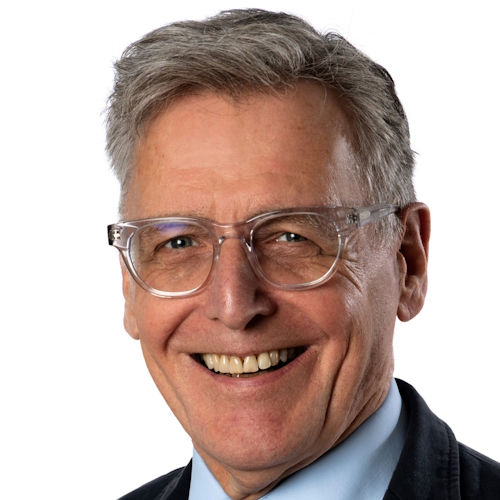
Roger McKinlayUK Research and Innovation 
Roger McKinlayUK Research and Innovation Since 2018 Roger McKinlay has been leading the Quantum Technologies Challenge in Innovate UK, part of UK Research and Innovation. The QT Challenge funds collaborative projects and has committed over £200m to industry-led projects over the past five years. Roger is a Chartered Engineer and a past president of the Royal Institute of Navigation. He joined UKRI following a career in the defence and aerospace industries. 
Professor Elham KashefiUniversity of Edinburgh / Sorbonne University / National Quantum Computing Centre 
Professor Elham KashefiUniversity of Edinburgh / Sorbonne University / National Quantum Computing Centre Elham Kashefi (FRSE) is a Professor of Quantum Computing at the University of Edinburgh and CNRS Director of Research at Sorbonne Universite and NQCC Chief scientist. She has pioneered transdisciplinary research on the structure, behaviour, and interactions of quantum technology, from formal and foundational aspects all the way to actual industrial use-case delivery (co-founder of VeriQloud). Kashefi's research team innovates across a broad range of platforms (photonic, superconducting, ion trap) with an integrated software research programme (simulation, modelling and benchmarking) delivering impact in quantum computing (machine learning, cryptanalysis) and quantum networks (quantum cryptography, quantum cloud computing) in a certifiable way (provable security and verification of computation). 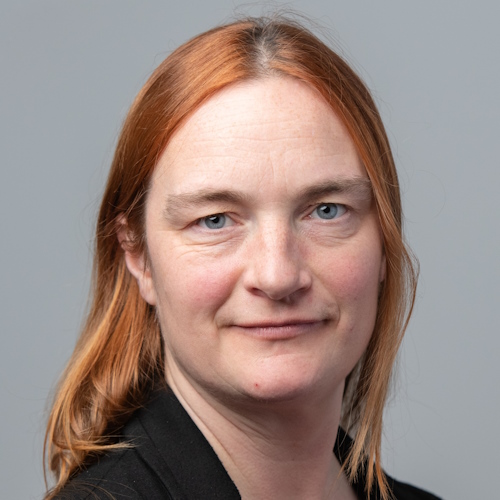
Professor Ruth OultonUniversity of Bristol 
Professor Ruth OultonUniversity of Bristol Prof Ruth Oulton is Professor of Quantum Photonics at the University of Bristol. Her research chiefly focuses on semiconductor nanostructures that emit single particles of light, photons, which are useful distributing quantum cryptographic “keys” (QKD) and strings of entangled photons for future quantum computing architectures. Ruth completed her PhD at the University of Sheffield, before undertaking an Alexander von Humboldt Fellowship at TU Dortmund, Germany. She now works at the University of Bristol where she has held two EPSRC Fellowships on quantum technology physics and applications. Currently, as well as her own research work, she is the Academic Lead of Bristol University’s Quantum Technologies Innovation Centre (QTIC), and is seconded as a UKRI Senior Research Fellow for 2 days a week to the Foreign, Commonwealth and Development Office (FCDO), where she advises the government on issues related to the interplay of quantum technologies and geopolitics. |
